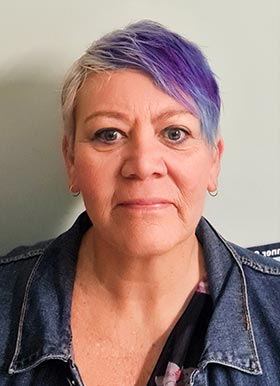
For Brenda Close, taking on leadership roles in multiple high-level nursing groups never gets in the way of her day job. In fact, she says, the kaupapa of leadership provides an across-the-board boost.
Close (Ngāpuhi, Te Rarawa, Ngāti Maniopoto) spoke to Kai Tiaki Nursing New Zealand about becoming new co-chair Māori of the National Nursing Leaders group (NNL), and the work ahead.
It is a job that has become even more important as health reforms, including a Māori health authority (MHA), loom.
The NNL is a national forum of nursing leaders, and organisations including employers, the Nursing Council and the Ministry of Health.
In June last year, the NNL announced a new bicultural approach. This included creating a Māori co-chair role, initially filled by Lorraine Hetaraka. However, she stepped down after becoming chief nursing officer.
Close has a longstanding history in nursing leadership, which included a stint as kaiwhakahaere of Te Rūnanga. Nowadays she is director of nursing for Ashburton and Rural Health Services in the Canterbury District Health Board.
This year Close became co-chair Māori of Nurse Executives of New Zealand, which saw her gain membership to the NNL.
The extra leadership work was important, she said. “I think for me the kaupapa in NNL is directly reflected in my day-to-day work. So my day job and my leadership participation… they really do uplift each other, and I can translate both areas into each.”
In May, Close took on the NNL co-chair Māori role as well, which is part of the two-house, Te Tiriti-based approach adopted by the group.
One house, she said, was for tangata whenua, and the other was for “tangata Tiriti”.
Dealing with health reforms
“So that model really reflects the partnership and I guess allows the group to enact a commitment to Te Tiriti and Māori taking leadership for things Māori, but the group having a collective responsibility for making improvements.”
This collective responsibility would be important as the group deals with upcoming health reforms, including an MHA.
“Our expectation is that we will contribute into that space and help shape what that looks like,” Close said.
The NNL’s structure and philosophy could give insight into how the MHA would be shaped.
Māori might lead in areas such as Māori development, and equity through access to nurse training, Close said, but the NNL “also recognises there’s a collective responsibility for that”.
“And I think in terms of the new health structure that’s really important. Because correcting the system for Māori isn’t going to be the responsibility of the Māori health authority – it’s everybody’s responsibility.”
Having an MHA would allow that to happen from a Māori worldview “rather than our mainstream services imposing how they think that should be done”, she said.
The collaborative approach was important too, in the work of the NNL, she said. Our role is to ensure a collaborative approach to nursing from a professional lens, and I guess, ensuring an opportunity for nurse leaders to collaborate around not just nursing issues, but also health issues.”
Understanding health was important with the upcoming changes, she said.
“I think now more so than ever it’s really important that we are connecting and having a consolidated voice around that [health], so that we can actually participate and influence for any future changes,” Close said.
This would ensure health service development was responsive “for the communities we live and work within”.
The current work includes looking at Māori recruitment and training.
“Again, the challenge is about how do we adjust the system? Because if you continue to run a mainstream programme of recruitment and retention into training, you’re going to continue to get the same results that you’ve had.”
Close has studied in mainstream universities and schools, but also in wānanga.
“And I guess, the health view is different: also the way we educate is different, and participate in learning.
“So we continue to challenge our schools of nursing in particular about how they might do that better.”




